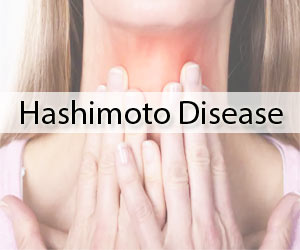- Home
- Editorial
- News
- Practice Guidelines
- Anesthesiology Guidelines
- Cancer Guidelines
- Cardiac Sciences Guidelines
- Critical Care Guidelines
- Dentistry Guidelines
- Dermatology Guidelines
- Diabetes and Endo Guidelines
- Diagnostics Guidelines
- ENT Guidelines
- Featured Practice Guidelines
- Gastroenterology Guidelines
- Geriatrics Guidelines
- Medicine Guidelines
- Nephrology Guidelines
- Neurosciences Guidelines
- Obs and Gynae Guidelines
- Ophthalmology Guidelines
- Orthopaedics Guidelines
- Paediatrics Guidelines
- Psychiatry Guidelines
- Pulmonology Guidelines
- Radiology Guidelines
- Surgery Guidelines
- Urology Guidelines
Treatment of Hoshimotos disease: Thyroidectomy better than medicines

Researchers from Telemark Hospital sought to determine whether thyroidectomy could improve symptoms in patients with Hashimoto thyroiditis who still had symptoms despite having normal thyroid gland function while receiving medical therapy.
US: A total thyroidectomy may be a better option to improve quality of life in patients with Hashimoto disease than medical management, a recent study in the Annals of Internal Medicine has pointed out .
The study was seen finding that a complete surgical removal of the thyroid is better than medical therapy with levothyroxine improved health-related quality of life and fatigue in patients with Hashimoto disease, whereas medical therapy with levothyroxin did not. Thyroidectomy also normalized serum antithyroid peroxidase (anti-TPO) antibodies. Findings from a randomized trial are published in Annals of Internal Medicine.
Hashimoto disease is most prevalent chronic autoimmune thyroiditis. Despite adequate hormone substitution, some patients have persistent symptoms that may be the result of immunologic pathophysiology.
The disease affects thyroid function and ultimately leads to hypothyroidism. Hormone substitution is effective for some patients, but some suffer from persistent symptoms, such as profound fatigue, poor sleep quality, muscle and joint tenderness, and dry mouth and eyes, despite medical therapy. To date, no specific treatment exists for such patients.
Researchers from Telemark Hospital sought to determine whether thyroidectomy could improve symptoms in patients with Hashimoto thyroiditis who still had symptoms despite having normal thyroid gland function while receiving medical therapy.
The researchers studied health outcomes at for 150 patients with confirmed Hashimoto disease seen at a secondary care hospital in Norway. The patients had either complete thyroidectomy or medical management.
During follow-up, only the surgical group demonstrated improvement in measures of health and fatigue. They had significantly better health-related quality-of-life scores than did controls.
Median serum anti-TPO antibody titers also decreased in the surgical group but not in the medical therapy group. These findings suggest that surgery should be considered in patients with normal hormone function and Hashimoto disease.
At 18 months, surgery patients had significantly better health-related quality-of-life scores than did controls. Surgery patients also had improved fatigue scores, and their serum anti-TPO antibody levels were significantly lower.
For further reference log on to:
Dry moutheyesHoshimotosnormalized serum antithyroid peroxidasepathophysiologyThyroidthyroidectomythyroiditis
Next Story
NO DATA FOUND

Disclaimer: This site is primarily intended for healthcare professionals. Any content/information on this website does not replace the advice of medical and/or health professionals and should not be construed as medical/diagnostic advice/endorsement or prescription. Use of this site is subject to our terms of use, privacy policy, advertisement policy. © 2020 Minerva Medical Treatment Pvt Ltd